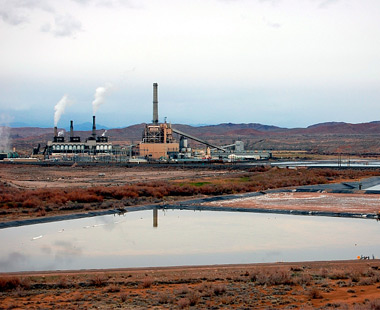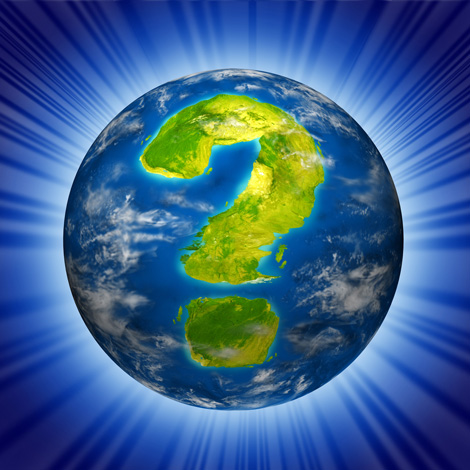In the 2008 presidential debates, moderators Tom Brokaw (second debate) and Bob Schieffer (third debate) asked presidential nominees Barack Obama and John McCain about climate change and reducing American dependence on oil. Both candidates vigorously supported reductions in carbon pollution, though the means to that end differed.
Since that election, the scientific evidence that climate change is real and human-caused has only grown. The health impact and economic costs of the extreme weather events and record temperatures of 2010, 2011, and 2012 are a 10-alarm warning that climate change poses a real threat to Americans and the world. And unlike in 2008, there is a clear difference between the candidates on whether to slow this looming disaster, let alone how to solve it.
The first 2012 presidential debate in Denver on Oct. 3 is scheduled to cover domestic policy, with a focus on the economy. Our energy future and response to climate change are as relevant to jobs, taxes, spending, and deficits as any other questions. A coalition of environmental groups just delivered 160,000 signatures to the first debate moderator, Jim Lehrer, “urging him to ask President Obama and Governor Romney about climate change during the first presidential debate next week.” Hopefully Lehrer will respond to this public view by asking at least one question related to climate change and clean energy.
Since the candidates have very different positions on the issues, Lehrer should pose different questions to them. Below are some suggestions, along with some background information on them.
Q. Gov. Romney, as governor you acknowledged that climate change was real and human-induced. Since then, the scientific consensus behind this finding has only grown stronger, including a 2010 National Academy of Sciences report that determined that the “climate is changing and that these changes are in large part caused by human activities.”
What scientific evidence led to your recent questioning of the scientific consensus that climate change is real and human-induced? And what evidence led to your current opposition to any carbon pollution reduction program?
Background: Recent Romney response about climate change to The Top American Science Questions: 2012:
I am not a scientist myself, but my best assessment of the data is that the world is getting warmer, that human activity contributes to that warming, and that policymakers should therefore consider the risk of negative consequences. However, there remains a lack of scientific consensus on the issue — on the extent of the warming, the extent of the human contribution, and the severity of the risk — and I believe we must support continued debate and investigation within the scientific community.
In 2010, the National Academy of Sciences concluded that there is more than ample evidence to act now to reduce the pollution responsible for climate change:
There is a strong, credible body of evidence, based on multiple lines of research, documenting that climate is changing and that these changes are in large part caused by human activities. While much remains to be learned, the core phenomenon, scientific questions, and hypotheses have been examined thoroughly and have stood firm in the face of serious scientific debate and careful evaluation of alternative explanations.
Even a Koch Foundation-funded researcher found that climate change is real and human-induced. Richard Muller, a former climate change skeptic, recently conducted a lengthy analysis of temperature data partially funded by the Charles G. Koch Charitable Foundation. This research project concluded that climate change is real and human-induced. He wrote in The New York Times:
Following an intensive research effort involving a dozen scientists, I concluded that global warming was real and that the prior estimates of the rate of warming were correct. I’m now going a step further: Humans are almost entirely the cause.
Former Romney support for action on global warming, from the Boston Globe, Nov. 8, 2005:
Governor Mitt Romney signaled his support yesterday for a regional agreement among Northeastern states to reduce greenhouse gas emissions, despite opposition from power companies and other business interests that have been lobbying the administration against the plan.
Q. Gov. Romney, you said that businesses need regulatory certainty and predictability to thrive. American auto companies and workers support the Obama administration’s modernized fuel economy standards, since they provide them with both. Additionally, the standards will save drivers money by reducing gasoline purchases, and will reduce carbon pollution responsible for climate change. Why do you oppose these standards when they are a win-win-win?
Background: Romney campaign on Obama’s finalized auto standards for Model Years 2017-2025:
“Gov. Romney opposes the extreme standards that President Obama has imposed, which will limit the choices available to American families,” said campaign spokeswoman Andrea Saul. “The president tells voters that his regulations will save them thousands of dollars at the pump, but always forgets to mention that the savings will be wiped out by having to pay thousands of dollars more upfront for unproven technology that they may not even want.”
Q. President Obama, you said during your acceptance speech, “Yes, my plan will continue to reduce the carbon pollution that is heating our planet.” During your first term, you made steep carbon pollution reductions from motor vehicles, and proposed the first limit on pollution from power plants. What specific steps will you take to achieve further carbon pollution reductions as part of your second-term agenda? Will you discuss the specifics of these plans with Americans during the campaign?
Background: Obama acceptance speech, Sept. 6, 2012:
And yes, my plan will continue to reduce the carbon pollution that is heating our planet — because climate change is not a hoax. More droughts and floods and wildfires are not a joke. They’re a threat to our children’s future.
What questions do you want to see the candidates asked?




